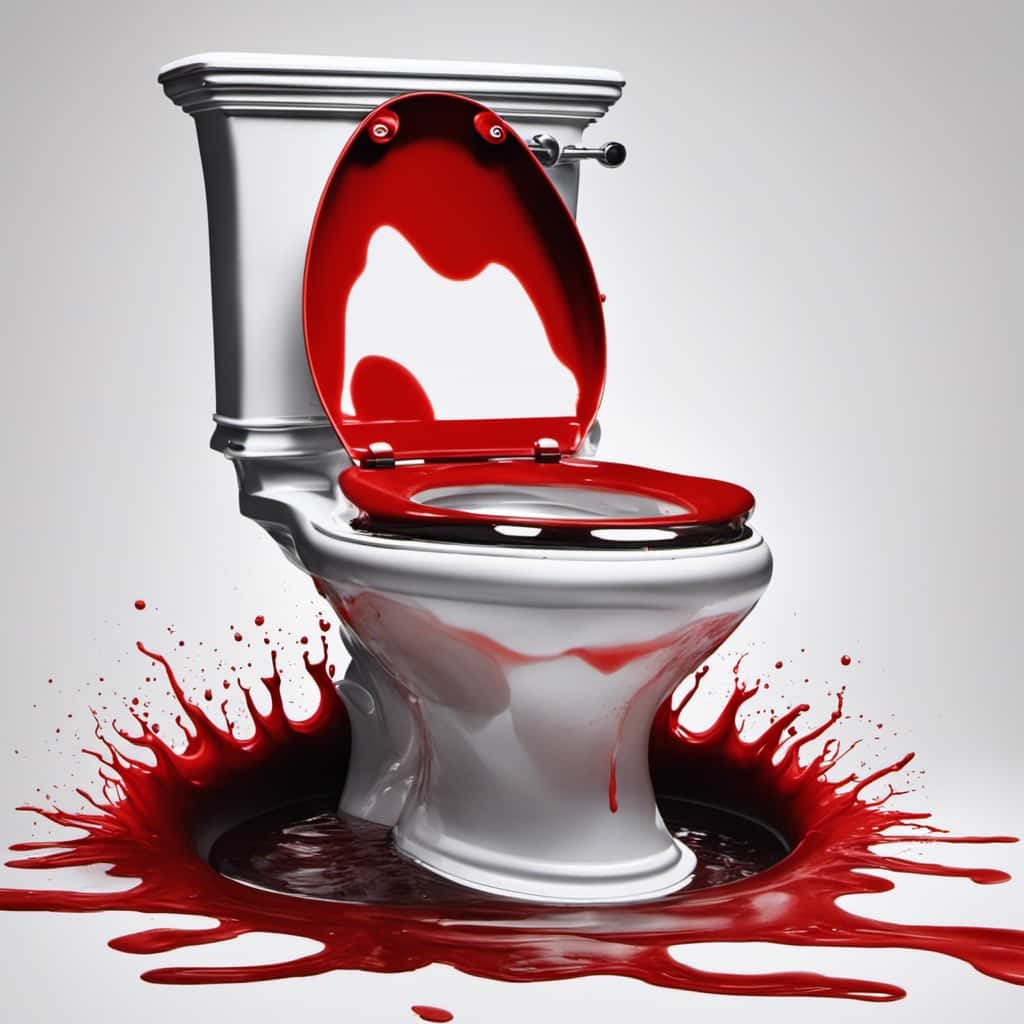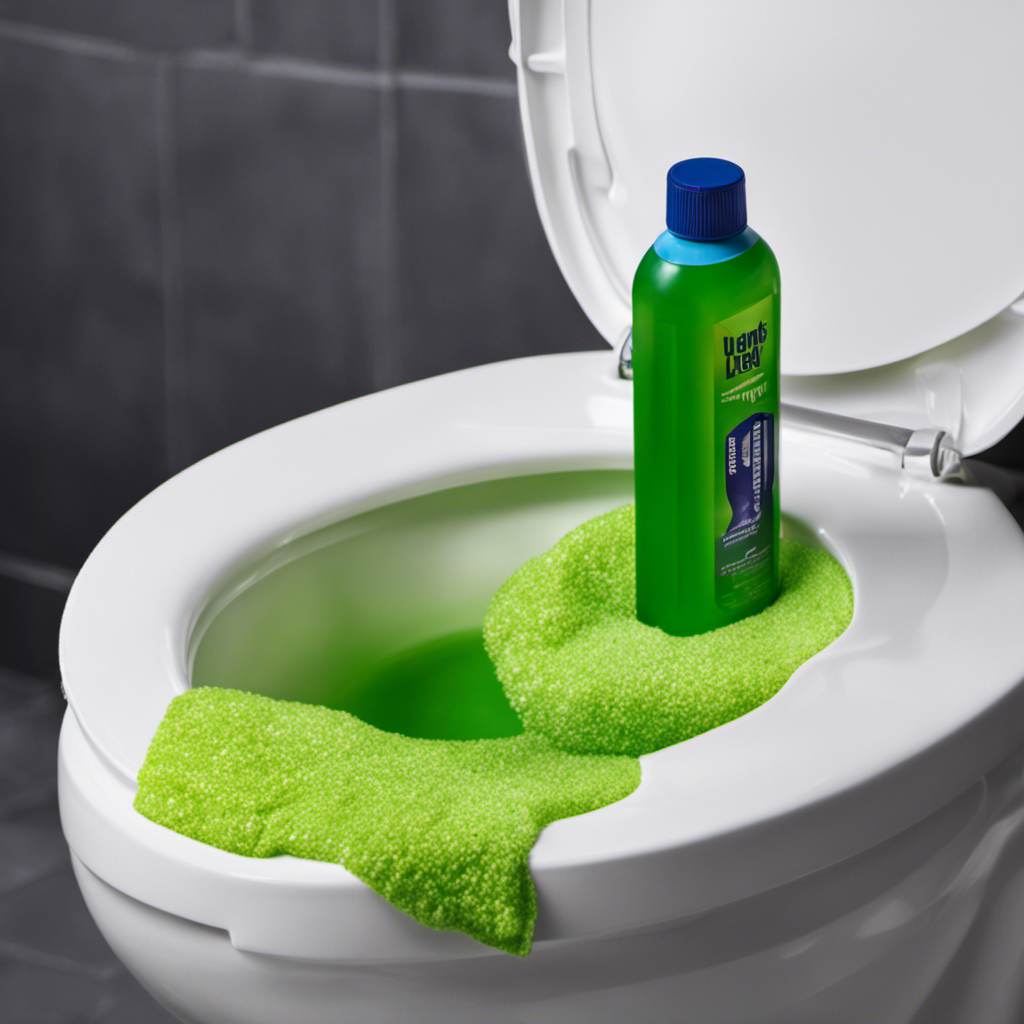Ladies and gentlemen, have you ever questioned the safety of flushing those convenient baby wipes down the toilet? Allow us to provide some insight on this issue.
Flushing baby wipes may seem harmless, but the truth is, it can lead to a host of plumbing issues and wreak havoc on our environment. In this article, we will delve into the risks, alternatives, and best practices for proper disposal.
So, buckle up and get ready to master the art of baby wipe disposal.
Key Takeaways
- Flushing baby wipes can cause clogged pipes, toilet clogs, and backups.
- Baby wipes are not biodegradable and contain plastic fibers that break down into harmful microplastics.
- Flushing wipes can lead to pipe damage, reduced water flow, and costly repairs.
- Proper disposal methods include throwing baby wipes in the trash bin, choosing biodegradable options, and securely wrapping used wipes before disposing of them.
Risks of Flushing Baby Wipes
What are the potential risks of flushing baby wipes down the toilet?
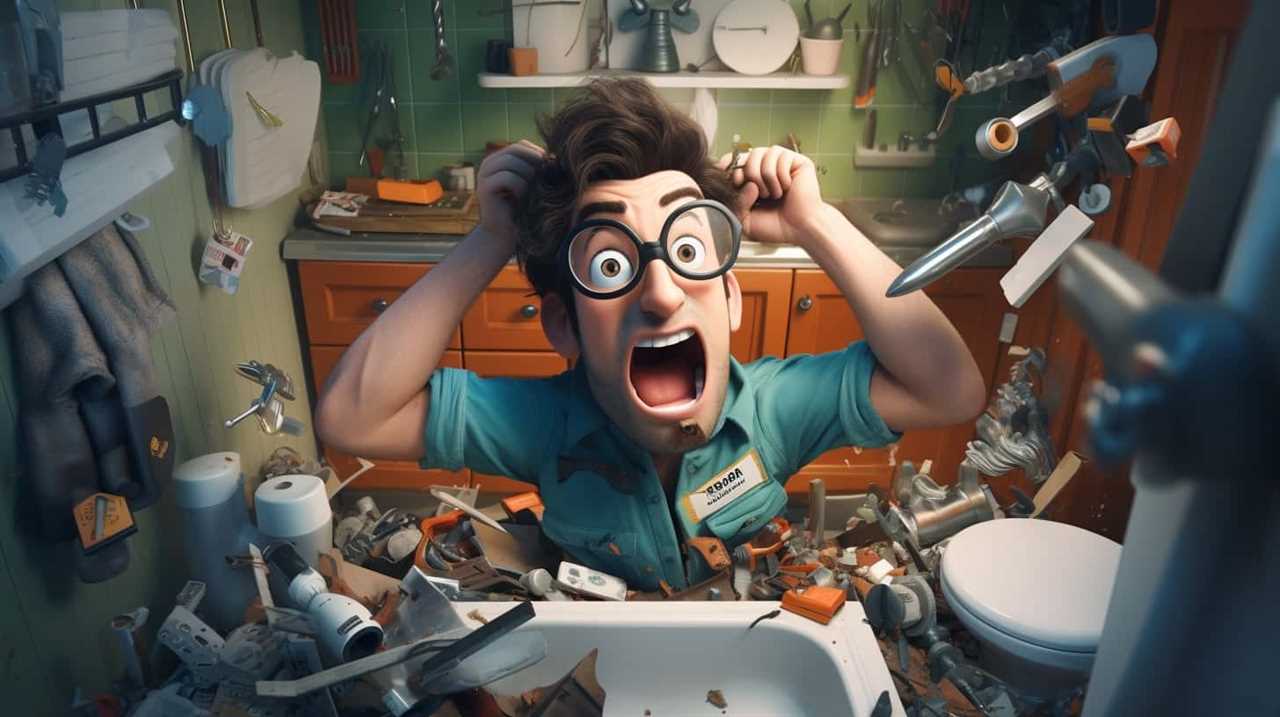
Flushing baby wipes down the toilet can lead to various health concerns and clogged pipes. While baby wipes may seem convenient, they aren’t designed to be flushed and can cause serious damage to plumbing systems.
When flushed, baby wipes can accumulate and form blockages in pipes, leading to backups and potential flooding. These blockages can be difficult and costly to fix, requiring professional help.
Additionally, baby wipes aren’t biodegradable like toilet paper, and they can contribute to environmental pollution when they end up in waterways.
It’s important to dispose of baby wipes properly by placing them in a trash can, to avoid these health risks and prevent clogs in the plumbing system.

Common Plumbing Issues
Flushing baby wipes down the toilet can lead to various health concerns, clogged pipes, and a range of common plumbing issues. When baby wipes are flushed, they do not break down like toilet paper, causing them to accumulate and form blockages in the pipes. This can result in toilet clogs and backups, leading to inconvenience and potential damage to the plumbing system.
To illustrate the impact of flushing baby wipes, let’s take a closer look at the common plumbing issues they can cause:
| Plumbing Issue | Description | Potential Consequences |
|---|---|---|
| Toilet Clogs | Baby wipes can accumulate and create blockages in the toilet, preventing proper flushing and causing backups. | Inconvenience, potential overflow, and costly repairs. |
| Pipe Damage | The non-biodegradable nature of baby wipes can cause them to get stuck in the pipes, leading to pipe damage and reduced water flow. | Expensive repairs, potential flooding, and compromised plumbing system. |
It is crucial to avoid flushing baby wipes to prevent these common plumbing issues and maintain the integrity of your plumbing system.
Environmental Impact of Flushing
As we continue our discussion on the impact of flushing baby wipes down the toilet, it’s important to consider the environmental consequences of this action. Flushing baby wipes can have a significant negative impact on our ecosystems and waterways. Here are three reasons why:

- Wastewater treatment: Baby wipes don’t break down easily in the wastewater treatment process, leading to clogging and increased maintenance costs for treatment facilities.
- Microplastic pollution: Baby wipes contain plastic fibers that can break down into microplastics, which are harmful to aquatic life and can bioaccumulate in the food chain.
- Water pollution: When flushed, baby wipes can end up in rivers, lakes, and oceans, contributing to water pollution and endangering marine life.
Considering these risks, it’s clear that flushing baby wipes isn’t an environmentally responsible choice.
In the next section, we’ll explore alternative disposal methods that are more sustainable and eco-friendly.
Alternative Disposal Methods
Moving forward in our discussion, let’s explore more sustainable and eco-friendly methods for disposing of baby wipes.
While flushing them down the toilet may seem convenient, it isn’t environmentally responsible. Instead, we should consider alternative methods that minimize the impact on our planet.

One option is to dispose of baby wipes in a sanitary landfill. This involves throwing them in the trash bin, which will eventually be taken to a landfill where they can decompose over time. However, it’s important to note that not all baby wipes are biodegradable.
To make more eco-friendly choices, opt for biodegradable baby wipes that are made from natural materials and break down more easily. By choosing these options, we can reduce our contribution to landfills and promote a more sustainable future.
Now, let’s move on to discussing the best practices for proper disposal.
Best Practices for Proper Disposal
So, how should we properly dispose of baby wipes to ensure minimal environmental impact?

As responsible parents, it’s crucial to prioritize proper hygiene while also considering the long-term effects on our planet. Here are a few best practices for the disposal of baby wipes:
- Do not flush: Flushing baby wipes can lead to clogged pipes and sewer backups, causing significant damage to both your plumbing and the environment.
- Wrap and bin: After use, securely wrap the baby wipes in a plastic bag or tissue before disposing of them in a designated waste bin. This helps contain any potential contaminants and prevents them from ending up in landfills or water bodies.
- Consider eco-friendly options: Look for biodegradable or compostable baby wipes that break down naturally over time, minimizing their impact on the environment.
Frequently Asked Questions
Can Flushing Baby Wipes Cause Damage to the Plumbing System?
Flushing baby wipes can cause significant plumbing system damage and have a detrimental impact on the sewage system. The non-biodegradable nature of baby wipes can clog pipes and lead to costly repairs.
Are There Any Specific Types of Baby Wipes That Can Be Flushed?
There are no specific baby wipes that can be safely flushed in the toilet. Flushing wipes can cause clogs and damage to the plumbing system. It is important to follow flushing restrictions to avoid costly repairs.
What Are the Consequences of Flushing Baby Wipes for the Environment?
Flushing baby wipes in the toilet can have severe consequences for the environment. The wipes can clog plumbing systems, leading to costly repairs. Additionally, they contribute to sewer blockages and can end up in waterways, harming marine life.
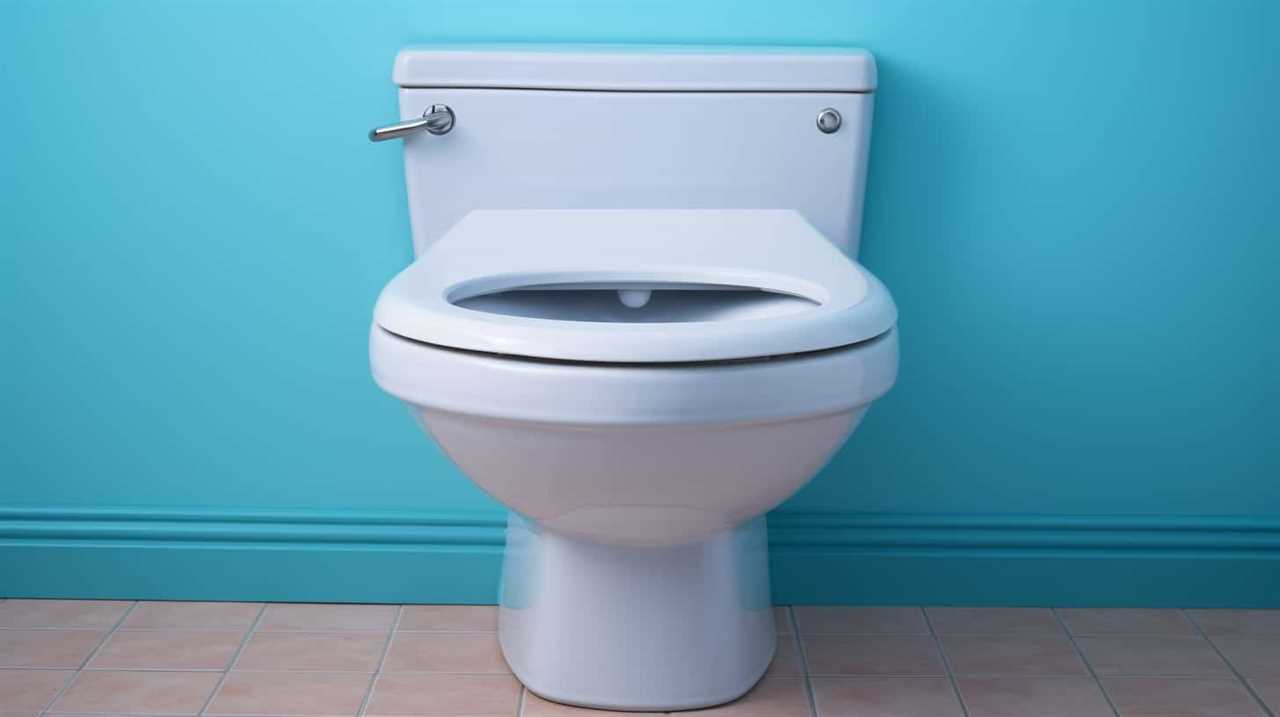
Are There Any Alternative Ways to Dispose of Baby Wipes?
Looking for alternative disposal methods for baby wipes? Well, fear not! We’ve got you covered. From composting to using biodegradable wipes, there are plenty of eco-friendly options out there. Let’s dive in!
How Can I Ensure Proper Disposal of Baby Wipes to Avoid Any Issues?
To ensure proper disposal of baby wipes and minimize environmental impact, it is important to use designated trash bins. Flushing baby wipes down the toilet can lead to clogged pipes and damage to wastewater treatment systems.
Conclusion
In conclusion, flushing baby wipes down the toilet can cause serious plumbing issues and have a detrimental impact on the environment.
It’s important to remember that baby wipes aren’t designed to break down easily like toilet paper. Instead, they can clog pipes and contribute to sewer backups.
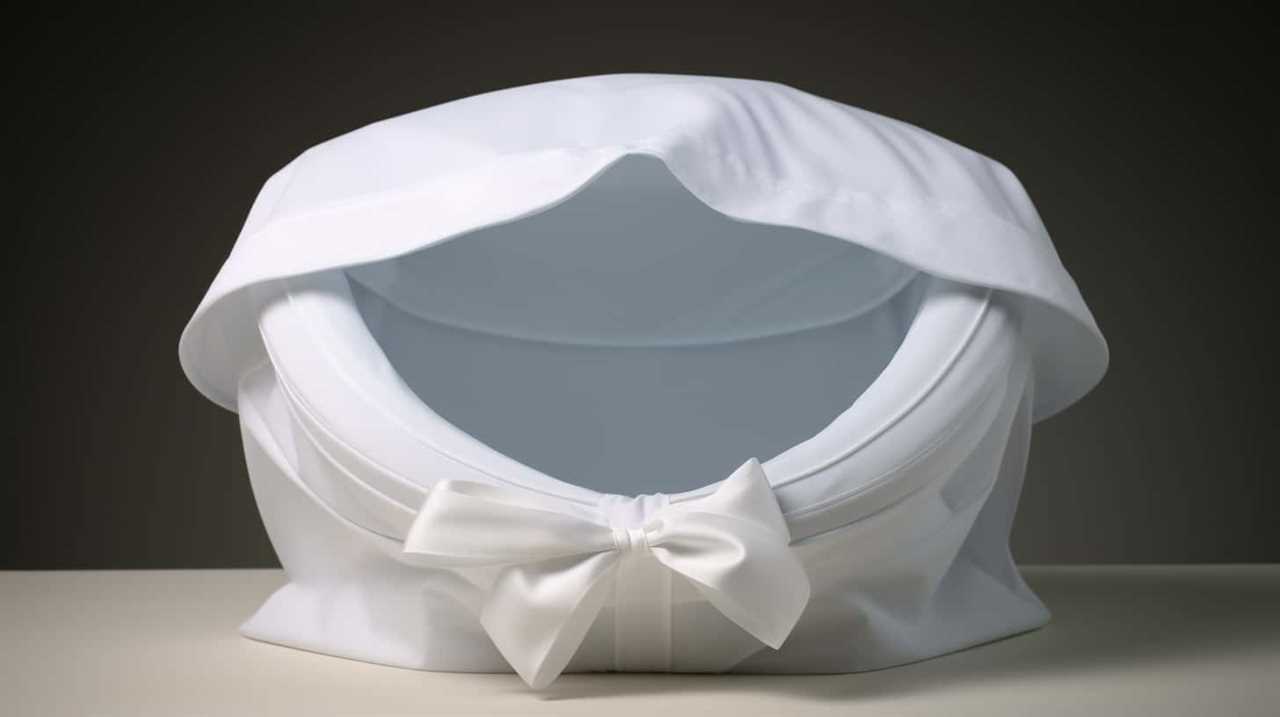
To avoid these problems, it’s best to dispose of baby wipes in the trash or use flushable wipes that are specifically designed for toilet disposal.
Taking proper care in disposing of baby wipes will help maintain a healthy plumbing system and protect our environment, like a delicate ecosystem needing balance.
